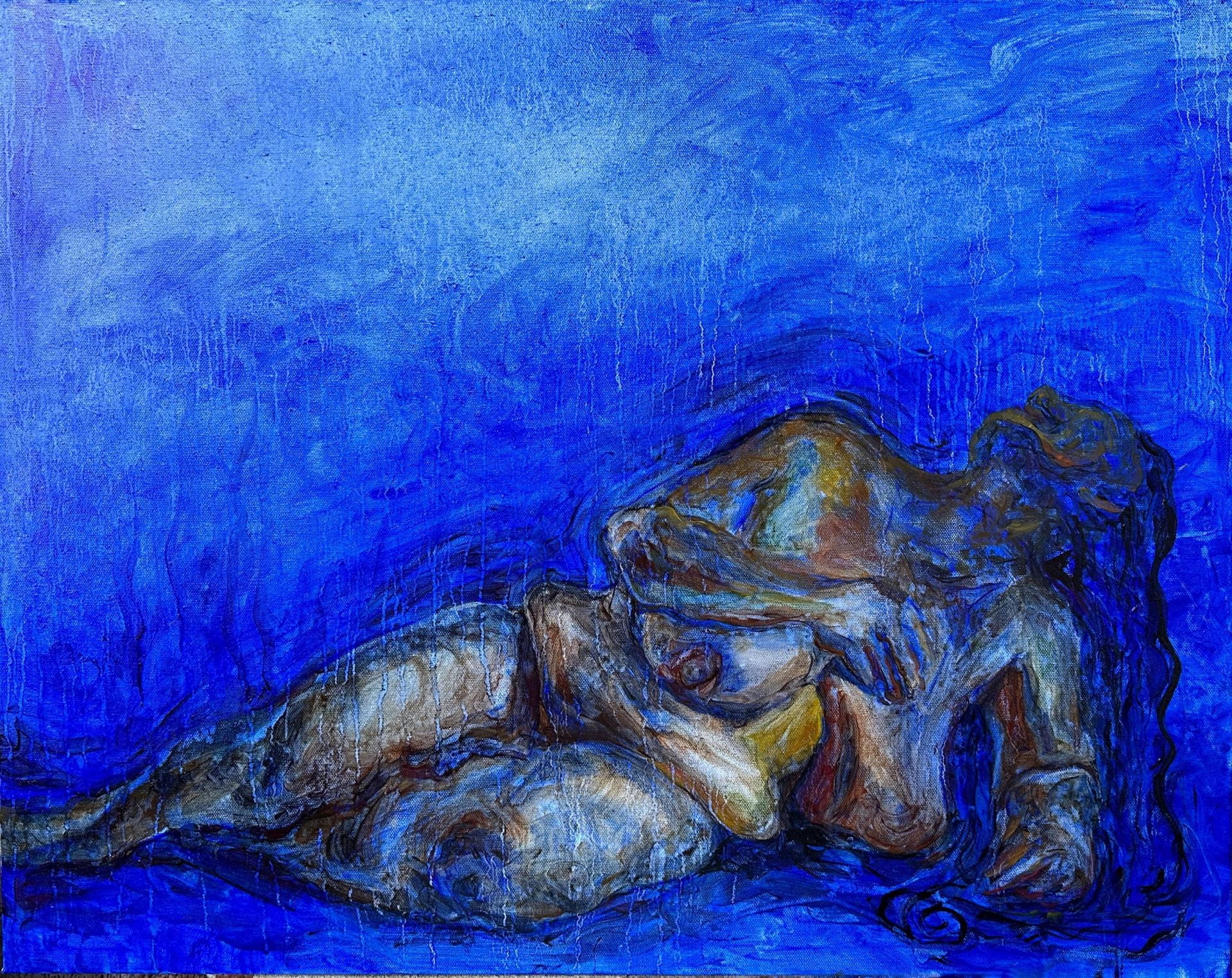By SARAH WU, MEL ARTHUR, and GABBY AVENA
Mel Arthur:
Rot, in simultaneous existence with crumble, disintegrate, stain, decompose, corrupt, sink, worsen, wither, descend, fester, and spoil. To inhabit the space of terrible beauty where the world and the bodies that exist within it circle around what has been made absent. Rotted as an attempt to reduce oneself into a personhood that seeks to touch and know touch. To be rotting, as in a state of constant overturning beginning within outward, to be a subject that denies being fixed. Rot: sketching modes of upheaval, falling into the earth, branching off into the creation of a new horizon. To be in rot, to rot, be rot then becomes the way we fall into inevitability and in the process of always always learning our incompleteness. We are interpellated by Rot, called in to be an object that makes its way into becoming a subject. Therefore. Rotting articulates what it means to teach “lost[ness] in the world” [Hartman, 227]. It is the line between possibility and possible. It outlines the edges of existence, ever so often allowing us to witness not only our precarity but our aliveness.
– mel// forever insufferable
Gabby Avena:
Like any garden, this issue is full of dying things. Beneath the splendor of flora there lies underneath: earthworms wriggling their little bodies through the dirt, larvae liquifying the tissue of the corpses of their flower-comrades, feeding the birth of new buds. Let yourself wander through the weeds. Maybe you will find a half-bitten, once-sweet, once-shared apple left to stain in the sun. Or maybe, off the beaten path, you will catch a tiny spider in the light, spinning the fragility of memory in its web. Listen to the chime announce the passing of the wind, of time, of the kind of corrosion that occurs outside/between/not simply within the body.
The poet Ross Gay – gardener extraordinaire – has a lovely line against timelessness: that which withstands the test of time is bad for the environment, is bad for life. Let us, for a moment, consider all that rot? makes possible.
– gabby // de-composing
Sarah Wu:
We come up with this theme during the third Indicator meeting and I, for one, will admit that I was very against this theme (thanks Cece) as rot often associates with the angsty writers trope. It seems to be a concurrent pattern where two prompts go against each other, and the one I want (alas, pedagogies of touch) is not chosen—
- yet still, the impression of rot hints inside my unconsciousness. When I fall asleep, I slip into uneasy, reckless dreams of bodies. Rot seeps into these piles of dream-bodies, crusts them with moss and foreign substances—the rot attached to the living
- and I think of the opposing action, to scrub away, to grab white soap and repeat the motion of sanitizing; back & forth, back & forth, the skin peeling off. To think of a cyborg—skin gleaming in silver, hard, perfect, slimmed down to efficiency. and
- to erase rot means to erase living. I think of rotting as a way of excess living in the world. I think about rot as part of fleshy skin and the slack-jawed post-mortem grin of a skeleton whose body stinks, the inevitability of being categorized, defined as organic.
- and so, in my inebriated, sleepy state, I come to this conclusion: let us embrace the angst
- because after all, we are all just rotting.
—Sarah // written at 2:30 am, edited for sanity at 3 pm
